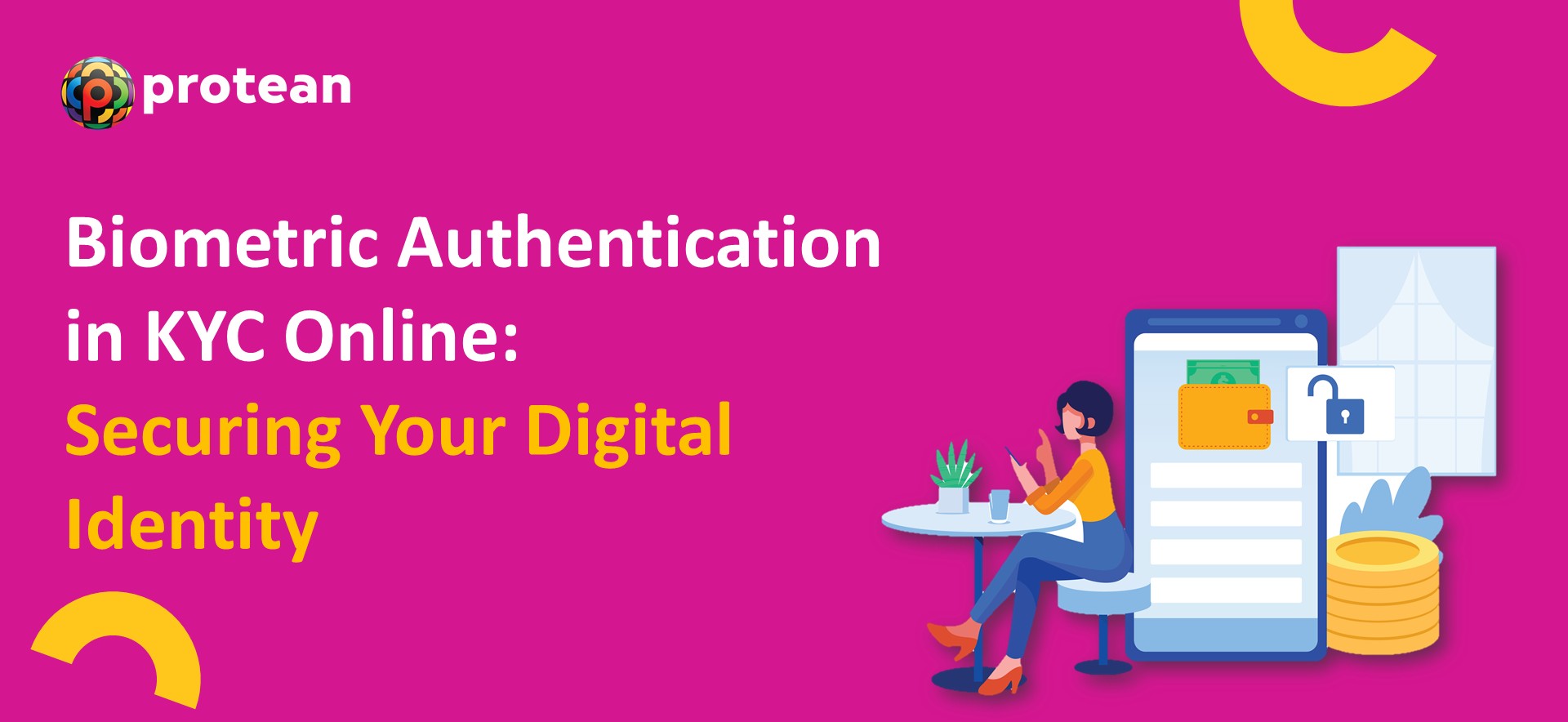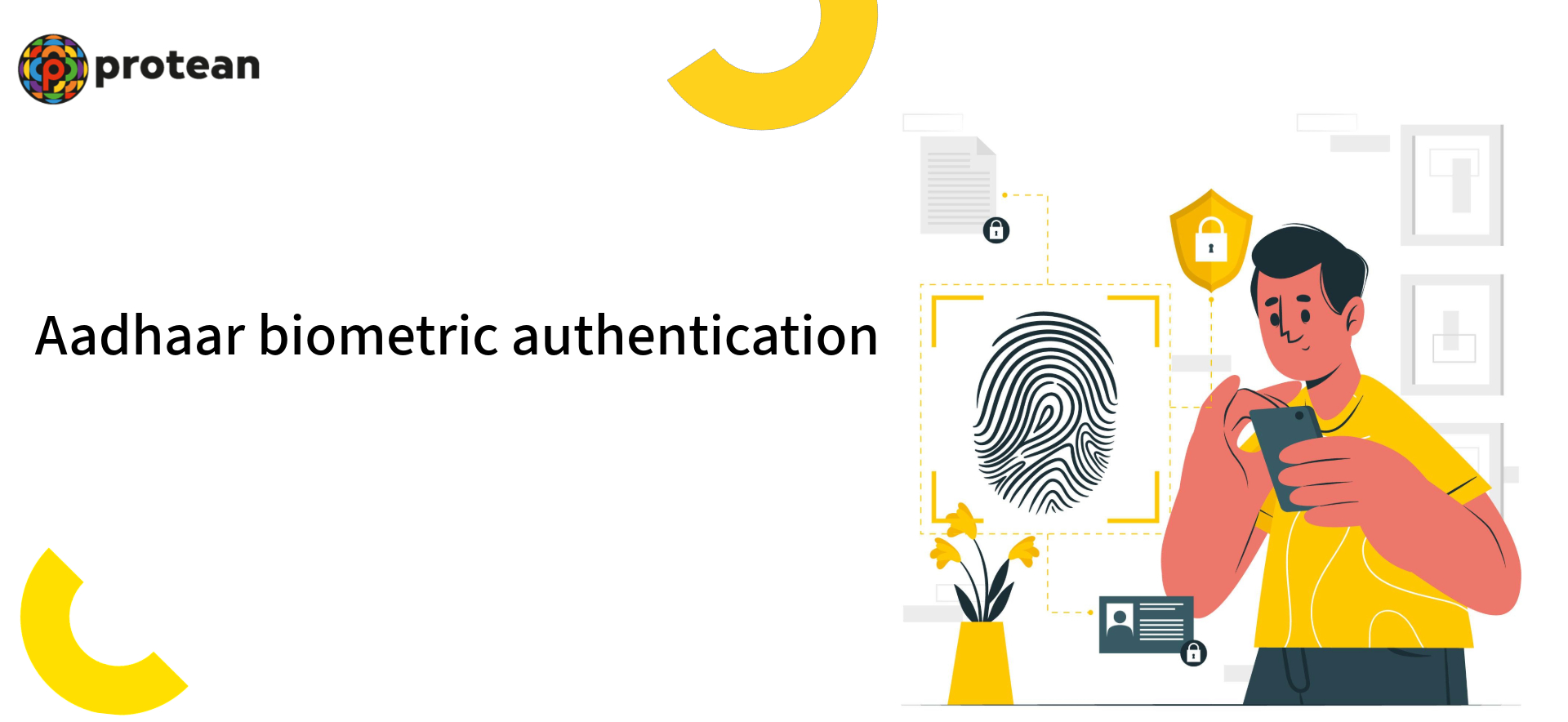Blogs
The Role of Biometric Authentication in KYC Online Verification
In today's digital world, setting up a new bank account, applying for a loan, or signing up for a new service often starts with something called KYC. Know Your Customer (KYC), is a process where businesses verify your identity to make sure you are who you say you are. This is crucial for security, preventing fraud, and meeting legal rules.
Traditionally, KYC involved a lot of paperwork, photocopies, and in-person visits. But thanks to technology, we now have KYC online verification, also known as eKYC verification. This digital shift makes the process faster and more convenient. At the heart of making eKYC verification truly secure and user-friendly is biometric authentication.
Let's explore what biometric authentication is, why it's so important for your digital identity, and how it’s changing the game for KYC online verification.
What is Biometric Authentication?
Simply put, biometric authentication uses your unique physical or behavioral traits to confirm your identity. Instead of remembering a password or carrying a card, your body becomes your "key."
Think about your fingerprint unlocking your smartphone, or your face allowing you to log into an app. These are examples of biometrics in action. Unlike passwords, which can be forgotten, stolen, or hacked, your biometrics are much harder to fake or lose.
Common types of biometrics used for authentication include:
- Fingerprint Recognition: Uses the unique patterns on your fingertips.
- Facial Recognition: Maps the unique features of your face.
- Iris Scan: Uses the distinct patterns in the colored part of your eye.
- Voice Recognition: Identifies you by the unique sound of your voice.
| Also Read: eKYC for Businesses |
Why Biometrics are a Game-Changer for KYC Online Verification
When you combine the convenience of eKYC verification with the security of biometric authentication, you get a powerful tool that benefits both individuals and businesses. Here’s why biometrics play such a vital role:
Enhanced Security Against Fraud
Passwords and IDs can be stolen, but your fingerprint or face is much harder to fake. Biometric systems create a unique digital signature based on your physical traits. This makes it incredibly difficult for fraudsters to impersonate you, leading to a much more secure KYC online verification process. Businesses can have greater confidence that the person they are onboarding is truly who they claim to be.
Speed and Convenience for Users
Imagine signing up for a service by simply looking at your phone or scanning your fingerprint, rather than filling out long forms. Biometrics make eKYC verification super-fast and effortless. This smooth experience means fewer people drop out of the application process because it’s too cumbersome, leading to higher customer sign-ups for businesses.
Accuracy and Reliability
Biometric systems are designed to be highly accurate. They can quickly compare a live scan of your biometric data with a stored record (like from your Aadhaar card in India) to confirm a match. This reduces the chances of human error that can happen with manual checks of documents. For KYC online verification, this means more reliable identity confirmation.
Meeting Regulatory Standards
Many industries, especially financial services, have strict rules (regulations) about verifying customer identity. Biometric authentication helps businesses meet these standards effectively. For example, in India, Aadhaar-based eKYC verification uses biometrics to ensure a high level of identity assurance, which is accepted by regulators.
Seamless Digital Onboarding
Biometrics allow for an entirely digital onboarding journey. From the comfort of their home, a customer can complete their KYC online verification using their smartphone's camera or fingerprint sensor. This "anytime, anywhere" capability is essential for businesses looking to expand their reach and offer services digitally.
| Also Read: Difference between eKYC and Traditional KYC |
How Biometric Authentication Works in eKYC Verification
In India, Aadhaar-based eKYC verification is a prime example of how biometrics are used. Here's a simplified look at how it works:
- Consent: You give permission for your Aadhaar details to be accessed.
- Authentication Request: The service provider sends a request to the Unique Identification Authority of India (UIDAI) system.
- Biometric Capture: You provide your biometric data (fingerprint or iris scan) through a certified device, or facial authentication via a mobile app.
- Verification: The UIDAI system instantly compares your live biometric data with the biometrics stored in its database.
- Confirmation: If there's a match, the UIDAI confirms your identity details (like name, address, date of birth) to the service provider.
This entire process happens in seconds, making eKYC verification with biometrics a highly efficient and secure method for identity confirmation.
Challenges and the Future of Biometrics in KYC
While biometric authentication offers immense benefits, there are also considerations:
- Data Privacy: Protecting sensitive biometric data is paramount. Strong encryption and data handling protocols are essential.
- Technology Access: Ensuring everyone has access to the technology (e.g., smartphones with good cameras or fingerprint scanners) needed for biometric capture is important for inclusivity.
- Liveness Detection: Advanced systems use "liveness detection" to ensure that a live person is providing the biometric data, not a photo or mask, further enhancing security.
The future of KYC online verification will undoubtedly see even more sophisticated biometric technologies. As AI and machine learning advance, biometric systems will become even more accurate, secure, and user-friendly, continuing to redefine how we prove our identity in the digital age.
Conclusion
Biometric authentication is not just a fancy feature; it's a fundamental pillar of secure and efficient KYC online verification. By leveraging our unique physical traits, it offers unparalleled security, streamlines the customer experience, and helps businesses meet their regulatory obligations. For anyone conducting transactions or onboarding customers online, understanding and embracing the role of biometrics is crucial for building a safer, faster, and more trusted digital ecosystem.
Frequently Asked Questions (FAQs) – KYC Online Verification
Q1: What is eKYC verification?
eKYC verification is the electronic process of verifying a customer's identity, usually done online without needing physical documents.
Q2: How does biometric authentication make KYC more secure?
It uses your unique physical traits (like fingerprints or face) which are very hard to fake or steal, making it much more secure than passwords or paper IDs.
Q3: What types of biometrics are used in eKYC?
Common types include fingerprint recognition, facial recognition, and iris (eye) scanning.
Q4: Is biometric KYC legal in India?
Yes, Aadhaar-based eKYC verification using biometrics is fully legal and accepted in India for identity verification by many regulated entities.
Q5: Can I do biometric authentication from my smartphone?
Yes, many eKYC verification processes now use smartphone cameras for facial authentication or fingerprint sensors if your phone has one.
Q6: Is my biometric data stored by every company I do eKYC with?
No, typically, the biometric data is sent to an official database (like UIDAI for Aadhaar) for verification and is not stored by the individual company. Only a confirmation of identity is shared.
Q7: Is biometric authentication the future of online identity verification?
Yes, due to its high security, speed, and convenience, biometric authentication is widely considered the future of KYC online verification and digital identity.






